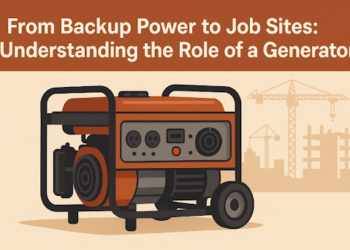Heat pumps are gaining popularity for their energy efficiency and ability to provide both heating and cooling. Whether you’re building a new home or upgrading your existing HVAC system, selecting the right heat pump is key to maximizing comfort and energy savings, notes Real Capital Property Group experts. But with so many options on the market, how do you make the right choice?
This article outlines seven essential factors to help you choose the ideal heat pump for your home. By understanding these considerations, you can confidently invest in a system that meets your needs.
1. Climate and Temperature Considerations
The climate where you live significantly impacts the type of heat pump that will perform best. For moderate climates, standard air source heat pumps are often sufficient. However, in colder regions, you’ll need a model designed for cold-weather efficiency.
Modern air source heat pumps now feature advanced technology to operate effectively even in sub-zero temperatures. If your region experiences harsh winters, consider a cold-climate heat pump. These units are equipped with enhanced compressors and defrost cycles to maintain reliable performance.
2. Energy Efficiency Ratings
Efficiency ratings are a crucial metric to consider when comparing heat pumps. Look for the following indicators:
- Seasonal Energy Efficiency Ratio (SEER): Measures cooling efficiency. A higher SEER rating means better performance during the summer.
- Heating Seasonal Performance Factor (HSPF): Reflects heating efficiency. Models with high HSPF ratings use less energy in winter.
Efficiency ratings not only influence energy consumption but also long-term savings. An efficient heat pump may have a higher upfront cost, but it can lower utility bills significantly over time.
3. Heat Pump Types: Choosing the Right Fit
Not all heat pumps are the same. The three primary types—air source, ground source, and ductless mini-split systems—offer unique advantages:
- Air Source Heat Pumps: These are the most common and transfer heat between your home and the outside air. They are versatile, affordable, and suitable for most climates.
- Ground Source (Geothermal) Heat Pumps: These systems use underground temperatures to provide consistent heating and cooling. While more expensive upfront, they offer unmatched efficiency and longevity.
- Ductless Mini-Split Heat Pumps: Ideal for homes without ductwork, these systems allow for zoned temperature control in specific areas of your home.
Each type has specific installation requirements and performance characteristics, so it’s essential to assess which one aligns with your home’s design and your budget.
4. Correct Sizing for Your Home
Heat pumps must be appropriately sized to deliver optimal comfort and efficiency. A system that’s too small will struggle to maintain desired temperatures, while an oversized system may cycle on and off too frequently, leading to energy waste and wear.
A professional HVAC assessment, like those offered by Foundry Heat Pumps, involves load calculations to determine the proper size based on factors such as:
- Square footage of your home
- Insulation quality
- Number and placement of windows
- Orientation of your home
Proper sizing ensures consistent performance and prevents premature system wear.
5. Features That Enhance Comfort and Savings
Today’s heat pumps come with various features to improve efficiency and convenience. Consider the following options when evaluating models:
- Variable-Speed Compressors: These adjust output based on your home’s heating or cooling needs, maintaining consistent temperatures while conserving energy.
- Smart Thermostat Compatibility: Integrating a smart thermostat with your heat pump allows for precise control and programming, maximizing energy savings.
- Quiet Operation: Many modern heat pumps operate quietly, making them ideal for homes where noise reduction is a priority.
Selecting a model with the right features can significantly enhance your home’s comfort and reduce energy consumption.
6. Installation Quality and Expertise
No matter how advanced your heat pump is, improper installation can compromise its performance. It’s essential to work with experienced HVAC professionals to ensure the system is installed correctly. Proper installation includes:
- Securing the outdoor unit in a location with adequate airflow and protection from debris
- Ensuring refrigerant lines and electrical connections are properly sealed and safe
- Testing the system for balanced airflow and consistent performance
Foundry Heat Pumps emphasizes the importance of professional installation to help homeowners maximize the efficiency and lifespan of their systems.
7. Long-Term Maintenance and Cost of Ownership
Heat pumps require regular maintenance to operate efficiently and last longer. Simple tasks like cleaning filters and clearing debris around the outdoor unit can prevent minor issues from escalating. Scheduling annual professional maintenance ensures:
- Optimal refrigerant levels
- Proper lubrication of moving parts
- Thorough inspection of electrical connections
While the initial cost of a heat pump may be higher than traditional systems, the savings on energy bills and reduced maintenance costs make them a smart long-term investment.
Additional Tips for Heat Pump Buyers
- Budget for Rebates and Incentives: Many governments and utilities offer incentives for installing energy-efficient heat pumps. Research available programs in your area to offset installation costs.
- Think About Zoning: If your home has areas with different temperature needs, a ductless mini-split system may be an excellent solution.
- Ask About Warranties: Check the warranty terms for both parts and labor to protect your investment.
Why Make the Switch?
Heat pumps are an excellent choice for homeowners looking to reduce their carbon footprint and lower energy costs. By transferring rather than generating heat, they use far less energy than traditional HVAC systems. With advancements in technology, heat pumps are now more versatile than ever, capable of performing well even in colder climates.
When choosing your system, it’s helpful to rely on trusted HVAC professionals like Foundry Heat Pumps to guide you through the process. Their expertise ensures you select a system that fits your home’s needs and delivers long-term efficiency and comfort.
Conclusion
Choosing the right heat pump involves balancing various factors, from climate and energy efficiency to installation quality and long-term maintenance. By carefully evaluating these considerations, you can invest in a system that enhances your home’s comfort and saves energy year-round.
A well-chosen heat pump not only provides a sustainable solution to your heating and cooling needs but also delivers lasting value. Take the time to assess your options and work with experienced professionals to make a decision that benefits both your home and the environment.







